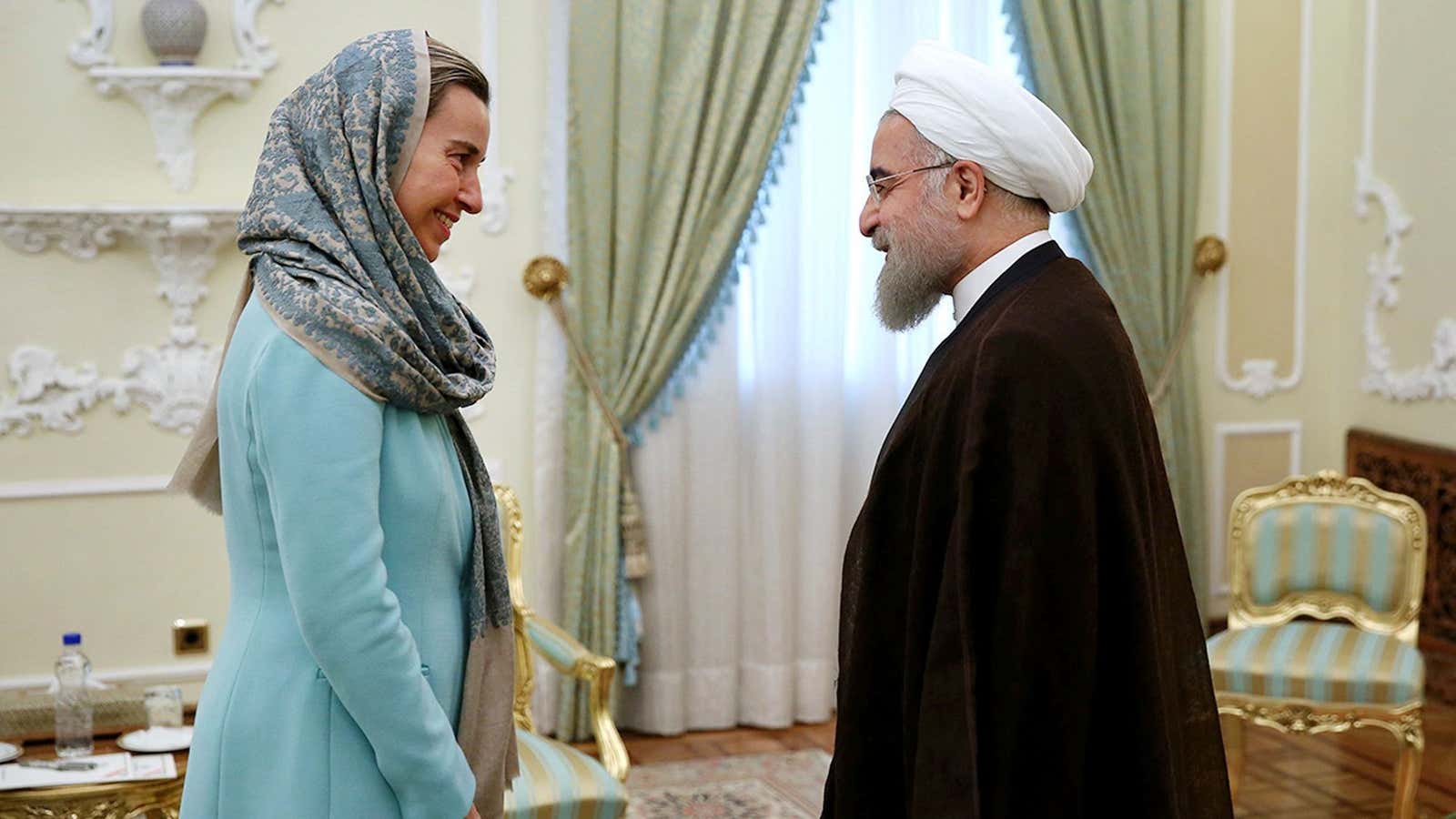President Donald Trump’s “America First” foreign policy could hurt the dollar’s global primacy, according to global business leaders and the European Union’s top diplomat.
Larry Fink, who runs Blackrock, the world’s biggest money manager, was asked about risks to the finance industry at a forum taking place alongside this week’s United Nations General Assembly. Fink cited the US move “from multilateralism to unilateralism” that “could lead to a deep desire to get another payment system.”
“If there is a movement to another payment system as another alternative storer of wealth, it could lead to a real dollar crisis,” Fink said.
He based his comments on meetings with CEOs of pension funds, sovereign wealth funds and other BlackRock clients from around the world, but was cagey about what a new system might look like. He said the timeline for such a shift could be less than 10 years “if the will is large,” but acknowledged that conventional wisdom puts a move away from a dollar-driven financial system closer to 20 to 30 years into the future.
Later, at a different event, the EU’s top diplomat Frederica Mogherini discussed a real-life case study for the dollar losing its edge as the global reserve currency: A new plan from the EU, Russia and China to help companies skirt US sanctions on Iran by not using the US financial system.
“The dollar is not the only currency on earth—we have the euro, others have their own currencies,” she said. Companies from third-party countries like India could use the mechanism to buy Iranian oil, she said.
Moderator Fareed Zakaria then asked the 64,000 euro question: “Would it be fair to say that the Trump administration’s position to pull out of Iran is producing the first serious challenge to the dollar’s role as the reserve currency because the Europeans are coming up with a mechanism to bypass it?”
“We could say this could be a result,” she said. “For sure, it has made us Europeans but also other parts of the world wonder what kind of autonomy we can have in the financial global environment to use our own instruments.”
